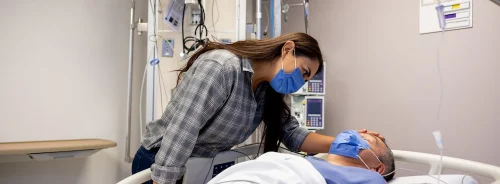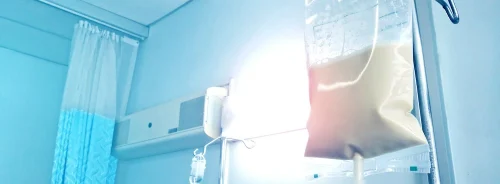Despite ongoing restrictive family visitation policies in ICUs worldwide, contemporary guidelines advocate for more flexible visitation. Flexible policies aim to enhance the ICU experience for both patients and their families and are linked to reduced acute anxiety in both groups and decreased depression in family members. These flexible policies do not increase the risk of ICU-acquired infections, mortality, or longer ICU stays.
Although previous studies suggest that flexible visitation can reduce short-term anxiety and depression, there has been no randomised clinical trial examining the long-term mental health effects on family members. A recent study aimed to evaluate how flexible versus restrictive visitation impacts the prevalence of post-traumatic stress, anxiety, and depression symptoms in family members up to one year after their loved ones' ICU admission.
This long-term outcome analysis compared flexible (12 hours/day) and restrictive (median 1.5 hours/day) visitation models in 36 Brazilian ICUs. Family members were evaluated 12 months after patient discharge from the ICU for post-traumatic stress symptoms using the Impact Event Scale-6 and anxiety and depression symptoms using the Hospital Anxiety and Depression Scale.
In the flexible visitation model, ICU visiting hours were extended to allow one or two close relatives to visit for up to 12 hours daily. This model also included structured educational sessions for family members about ICU operations, procedures, and patient care conducted by trained healthcare professionals. Additionally, family members had access to informational materials and a dedicated website. Social visits from non-eligible family or friends were also permitted.
In contrast, the restrictive visitation model limited visitors according to local hours, with a median of 1.5 hours per day. Family members did not receive structured educational sessions and were required to leave during intensive care procedures. In both models, exceptions were made for extraordinary situations, such as advanced age or terminal illness, allowing for longer visits when necessary.
The analysis included 519 family members, with 288 in the flexible visitation group and 231 in the restrictive group. Family members in the flexible visitation group had a significantly lower prevalence of post-traumatic stress symptoms compared to those in the restrictive group (21% vs. 30.5%). However, there were no significant differences in the prevalence of anxiety (28.9% vs. 33.2%) or depression (19.2% vs. 25%) between the groups.
As per study findings, family members in the flexible ICU visitation model had significantly lower post-traumatic stress symptoms compared to those in the restrictive visitation model. This benefit could be attributed to continuous emotional and social support, stronger family bonds, increased involvement in care, and improved communication with ICU staff. The reduction in post-traumatic stress was more pronounced among those with longer ICU stays. However, no significant differences in long-term anxiety and depression symptoms were observed between the two visitation groups.
These findings suggest that flexible visitation could be beneficial for improving long-term mental health outcomes for ICU patients' relatives, highlighting the need for more evidence-based interventions in this area. Flexible ICU visitation was associated with a significant reduction in the 1-year prevalence of post-traumatic stress symptoms in family members compared to restrictive visitation.
Source: Intensive Care Medicine
Image Credit: iStock






